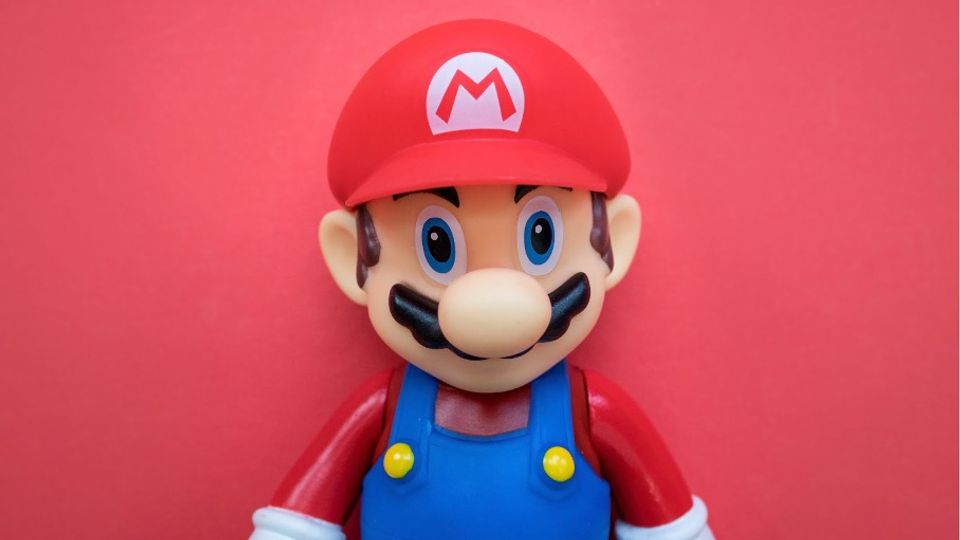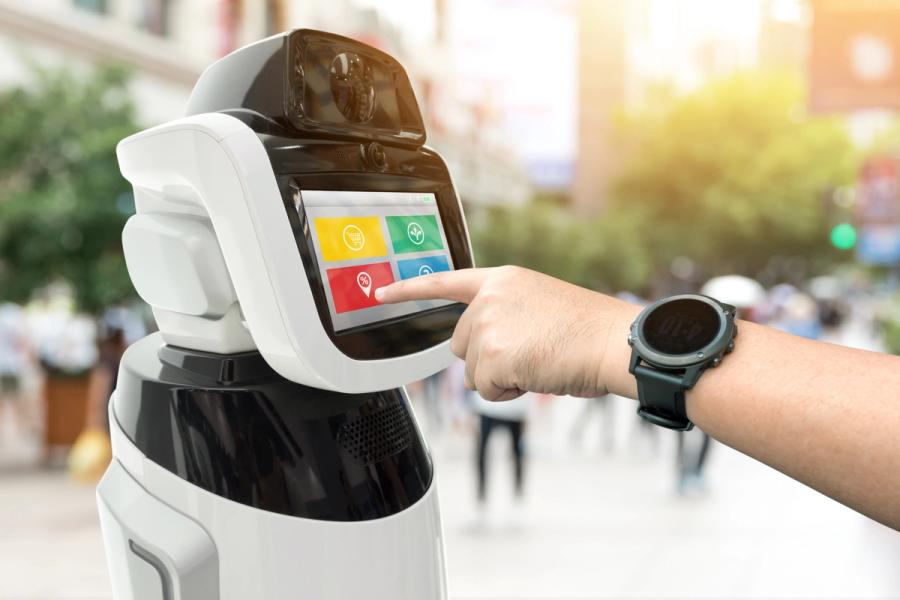Super Mario Boss: when recruitment becomes a game
Mark Twain once wrote: “Play consists of whatever a body is not obliged to do.” We all like to play. At least we all know how to play, because most of the mechanisms of play are instinctive and strongly linked to the social nature of our existence: we play with others, against others, and rarely alone.

In the age of entertainment, social networks and the digitisation of social interaction, more and more companies are integrating games into their recruitment processes, a move also known as ‘gamification’. The use of games in recruitment is a great success and enjoyed by most applicants. For companies, it is also an opportunity to view candidates in a different light, in particular by giving them an opportunity to showcase their soft skills.
Why gamification?
The term ‘gamification’ is derived from the word ‘game’ and refers to the methods adopted by companies to introduce games and role-playing into their recruitment processes. Once a mere form of entertainment, games have become a highly structured industry in just a few years, and companies have also taken to them.
For instance, in 2010, L’Oréal launched Reveal by L’Oréal, an online game intended to recruit interns worldwide. Students from all over the world log on to the site and can explore the group’s activities, test themselves and put themselves in various situations. According to the applicants, this is a promising direction but requires further development.
At the same time, KPMG also tried the experiment with an online challenge to recruit its interns, 80 Days: Race The World. The winner was offered an internship with the firm as well as a travel voucher worth €1,200.
Attracting Gen Z
At a time when HR departments need to retain employees who have become their employer’s ‘internal customers’, it is important that the HR tasks to be performed at the time of their integration and throughout their time at the company are not perceived as too lengthy or burdensome!
New recruits are likely to be more immediately attracted by an integration process presented in the form of a treasure hunt than by a list printed on an A4 sheet. An opportunity to make a good first impression on the younger generation.
A practical assessment
Another reason why HR managers use gamification is to simplify the recruitment process, increase its efficiency and cut costs. Gone are the days of meaningless cover letters that no one wants to write… or read. More seriously, the game enables an employer to assess a candidate’s behaviour in an actual situation, determine their aptitudes, creativity or ability to solve a problem: a life-size test that paints a more accurate and objective picture, without the stress and stiffness of a traditional interview.
Proven effectiveness
In practice, gamification is proving its effectiveness every day as a recruitment tool. According to the HR Média 2016 report on “Gamification and HR”, turnover at the Centre de Formation des Apprentis des Métiers de la Poste (in France) has fallen from 25% to 8% thanks to Facteur Academy, a ‘serious game’ used during the recruitment process that helps select the most suitable applicants for the positions to be filled.
And the employer brand benefits, too.
As well as helping you find the perfect applicant, gamification is a great tool for building and boosting your employer brand in a genuine way. It gives you the opportunity to communicate on innovative recruitment methods that are actually implemented at your company.
By using gamification in recruitment, you arouse the curiosity of a generation that attaches great importance to corporate culture. And at a time when a war for talent is raging, you need to explore all avenues to attract the best talents, the digital natives, the talents of tomorrow!
Decathlon also uses gamification in its recruitment processes. For instance, teams of four students are given the fictitious task of launching a product (presented to a jury of brand experts), then of the full-scale management of a shop for five days. “Decathlon has a great reputation with the general public, but young executives tend not to know about its various businesses,” says Stéphane Saigre, Managing Director of Decathlon France & Benelux, who intends to turn the situation around with games. “With these business games, we wanted to send several messages to students: Decathlon is ready to give people responsibilities, welcomes initiative and has a policy of letting people make mistakes, which is part of the learning process,” continues Stéphane Saigre. Of course, everything is reported in detail on the company’s blog and Facebook page to boost the employer brand.
Fair to applicants
And many candidates view games as fairer and more inclusive.
Paradoxically, the younger generation has greater confidence in the selection criteria of AI algorithms than in the subjective judgement of a recruiter who may not like them.
The experiment made at Unilever Belgium is interesting in more ways than one. The recruitment process is almost entirely game-based. During the first round, the applicants are given one hour to play fast games developed according to neuroscientific principles. “We use gamification to test the applicants’ personalities,” says Stefania Moncada, Talent Advisor at Unilever Belgium.
The total score reflects the applicants’ managerial potential. “The algorithm distinguishes between applicants for finance jobs and marketing jobs, which require totally different assessments. Although Unilever uses this system internationally, each region has its own version, which is adjusted to local HR requirements,” adds Sabine Blanchet, HR Director at Unilever Belgium.
Even more remarkably, recruitment gamification enables many unconscious human biases to be avoided. “At first, applicants are not judged on their CVs or diplomas. That only comes into play during the last round, the personal interviews. Also, the shortlisted applicants are more diverse,” concludes Sabine Blanchet. “We still get equally qualified candidates, but they often have different academic backgrounds. “
The various ways of introducing gamification
The choice of game-based recruitment depends on the budget allocated, the time available for recruitment, the profiles sought and the number of people to be recruited. Game types vary according to the type of position to be filled.
For instance, we know that IT companies and start-ups often use hackathons, which are easy to set up and inexpensive, but enable the best developers to be selected with a high rate of certainty.
Escape games are also popular: these are 15-, 30- or 60-minute scenarios during which the applicants are ‘trapped’ in a space and have to find a way out. The purpose of escape games is to assess the applicants’ soft skills, as well as their capacity for analysis and observation by means of puzzles to be cracked in teams.
Moreover, according to a survey of 1,237 candidates conducted by AssessFirst on 7 September 2018, escape games appear to be the most reliable (64%), most innovative (77%) and least discriminatory (34%) recruitment method.
They are very useful tools for recruiting sales teams or engineers, for instance. The best is to use a supplier specialised in recruitment escape-game design to design customised scenarios for your company.
Serious games are another way in which games can be included in your recruitment process. In serious games, the applicant’s goal is not to win, but to explore the environment of the company they are applying to join while performing a number of tasks. Some of these games include tasks that are supposed to reveal the applicants’ personality. The BNP Paribas group pioneered this approach with the StarBank application, which invites applicants and new hires to develop a bank from scratch.
Risks and conclusion
If, as Plato wrote, “you can learn more about someone in an hour of play than in a year of conversation”, gamified recruitment has its pitfalls. Among these, the commonest is relying entirely on technology to make decisions. The HRM needs to have their hand on the tiller at all times!
Trying to turn everything into a game is not only misleading, but can be counterproductive. Games must be used advisedly; for instance, in some contexts, challenges between teams or individuals generate a spirit of emulation. However, they can also bring out competitiveness and selfishness. The latter divide teams and make it impossible to recruit the best talent.
The most important factor in recruitment is human connection. A short debriefing interview after the game, to explain results, emphasise the skills observed, and above all give the applicants an opportunity to give an account of their personal experience. Not too difficult, right? Even if they are not selected, your applicants will learn from their experience, which will be positive.
Our latest articles

Jobboards : the end of the dinosaurs?
Bad times for job boards. Online recruitment platforms are experiencing a decline in popularity and effectiveness and are increasingly becoming the dinosaur of recruitment tools.

Human after all? The impact of digital technology on sales jobs and skills
Impact. Is this word too strong? Or maybe not the right one to describe the upheaval now affecting the labour market?

Super Mario Boss: when recruitment becomes a game
Mark Twain once wrote: “Play consists of whatever a body is not obliged to do.” We all like to play. At least we all know how to play, because most of the mechanisms of play are instinctive and strongly linked to the social nature of our existence: we play with others, against others, and rarely alone.